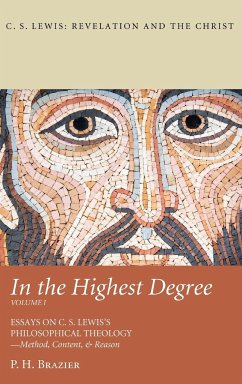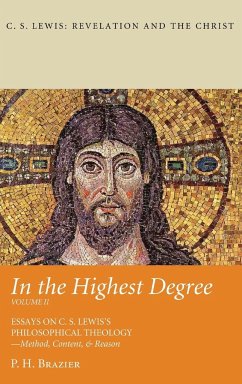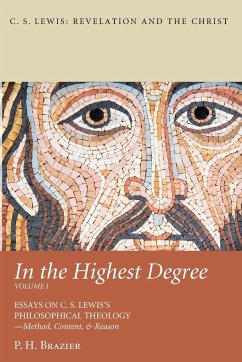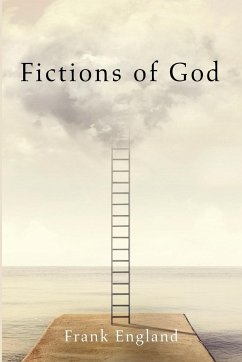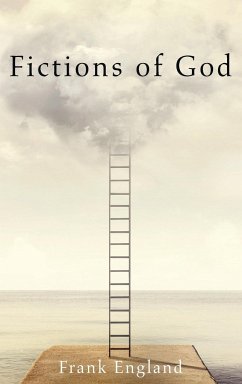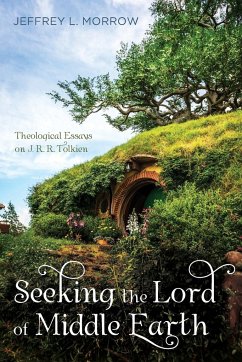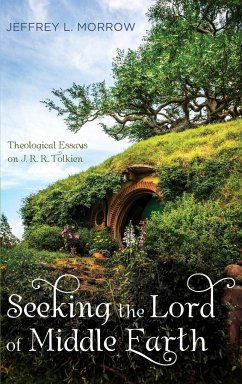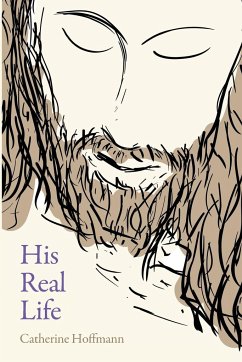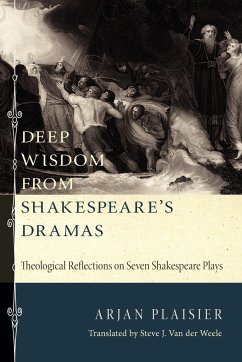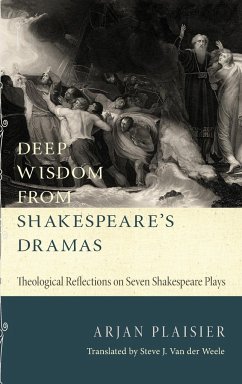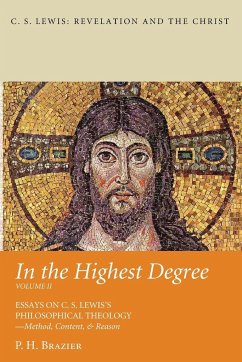
In the Highest Degree
Volume Two
Versandkostenfrei!
Versandfertig in 1-2 Wochen
25,99 €
inkl. MwSt.
Weitere Ausgaben:

PAYBACK Punkte
13 °P sammeln!
The theological and philosophical works of C. S. Lewis were grounded in the argument from reason (being a form of revelation that predates nature and relates to the divine; i.e., the Word of God, Christ the Logos). These essays provide some understanding of the essentials to Lewis's philosophical theology--that is, the essentia, "in the highest degree." Lewis's corpus can seem disparate, but here we find unity in his aims, objectives, and methodology, a consistency that demonstrates the deep roots of his philosophical theology in Scripture, Greek philosophy, patristic and medieval theology, an...
The theological and philosophical works of C. S. Lewis were grounded in the argument from reason (being a form of revelation that predates nature and relates to the divine; i.e., the Word of God, Christ the Logos). These essays provide some understanding of the essentials to Lewis's philosophical theology--that is, the essentia, "in the highest degree." Lewis's corpus can seem disparate, but here we find unity in his aims, objectives, and methodology, a consistency that demonstrates the deep roots of his philosophical theology in Scripture, Greek philosophy, patristic and medieval theology, and some of the Reformers, all framed by a reasoned discipline from a perceptive and critical mind: method and form, content and reason, for the glory of God. From an analysis of reason to the evidence of Christ as the light of the world across human endeavors and religions, a doctrine of election, and an understanding of Scripture ("the Philosophy of the Incarnation," as Lewis termed it), in fundamental arguments with various modern/liberal theologians, we find evidence for the actuality of the incarnation: the divinity of Christ.





